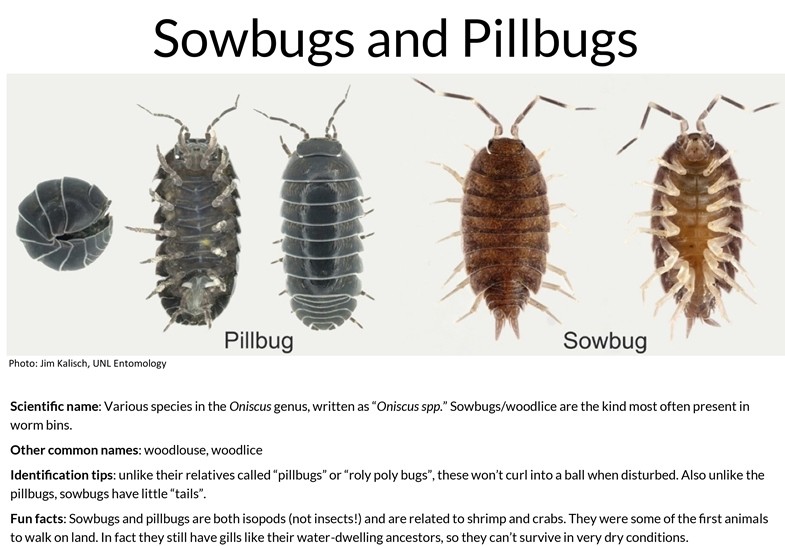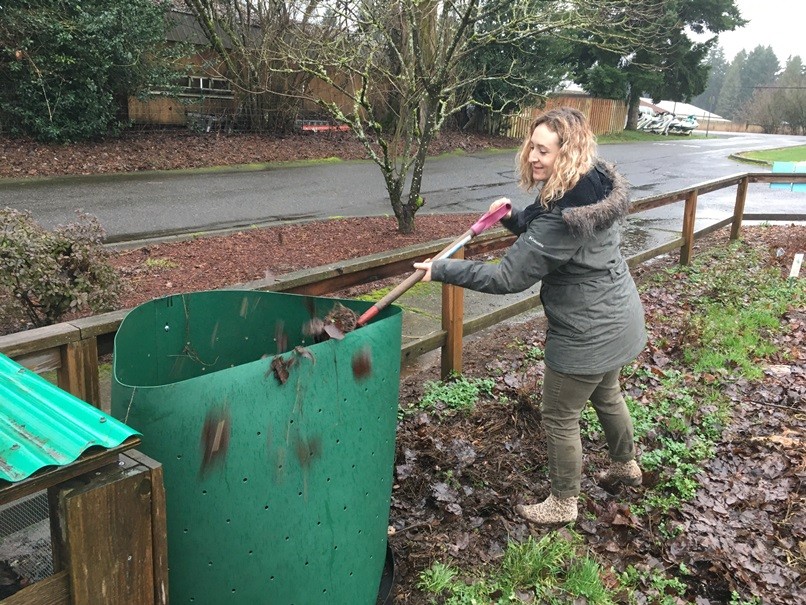Clark County Green News
Making connections: resources from the Master Composter Recyclers
The Gardner School of Arts and Sciences is a small private school located in the Salmon Creek area of Clark County. This year, their staff have been working on certifying with Washington Green Schools and making their whole school a "Green Team." Two certification areas offer a chance for schools to work with our sister program, Clark County Master Composter Recyclers (MCR): Waste & Recycling and School Grounds & Gardens. Luckily for us, a parent of a Gardener School student is also a volunteer with the MCR program! So to support the school's green efforts that volunteer, Angelina Lai, led a workshop for Gardner families about our waste system and what they can do, at school and at home, to reduce waste.
The workshop focused on composting with red worms, also known as vermicomposting. To start off the workshop, attendees had a chance to get their hands dirty and dig around in some vericompost (the compost made with a red worm composting system). Red worms, also known as red wrigglers, are the worm of choice for composting because they are highly efficient at breaking waste down. As they break down the waste, they excrete nutrient-rich castings, and they break food and plant scraps into smaller pieces. Getting the scraps broken down into these smaller pieces is essential in the process of getting the waste fully decomposed and turned into compost. Smaller organisms, like bacteria, mold, fungi and some smaller invertebrates, need the worms to start the process of decomposition before they too can eat, and break down, the waste. Among the worms, attendees at the workshop also found sowbugs (yes, they're different than "roly-poly" or "potato" bugs!), centipedes, soldier fly larvae and springtails. They all play an important role in the worm bin and the process of turning waste into nutrient-rich compost.
Angelina also taught workshop attendees about the ins and outs of maintaining a healthy worm bin. She covered the basics of how to create and start a worm bin, what types of waste can be added to a worm bin and when to harvest the compost (and worms!). Before taking the workshop, many attendees had minimal knowledge of composting, but by the end of the class they were experts! Thanks to Angelina, more people in the community can keep food scraps out of the landfill and make healthy, nutrient-rich soil we need to grow healthy, nutritious food. Having this expertise in their school community will also help the Gardner School as they care for their new worm bins and larger on-site composting for the food and plant waste generated at the school.
The Master Composter Recycler program and Clark County Green Schools work together to support schools in their waste reduction efforts and applying composting practices in school gardens. Resources include:
by Author
- In-class worm bin presentations and year-round classroom worm bin support (MCR provides the worm bin, and the worms!)
- Online resources about composting, care and keeping of worm bins
- Consultations for troubleshooting school garden/horticulture/on-site composting systems
- Presentations to Green Teams about reducing toxic chemical waste by using DIY "green" cleaners (coming soon!)
- Workshops for Green Team leaders and school garden coordinators about composting in the school garden, using compost to easily put gardens "to bed" for the winter, and more; compost bins provided (coming soon!)
Want to know more about these resources?
Want to schedule a consultation or presentation?
When you subscribe to the blog, we will send you an e-mail when there are new updates on the site so you wouldn't miss them.





